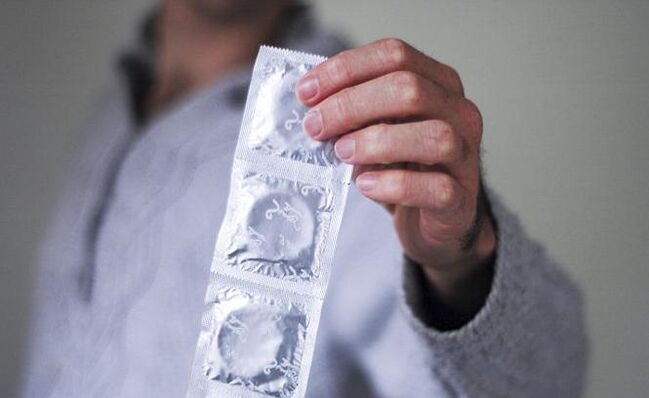
Prostatitis is the most common urinary system disease today. The reason for this is that the factors that lead to the development of prostatitis are very common in men's daily life. In general, the treatment of prostatitis is a rather complex process that includes a complex procedure, medication, therapy and massage. To achieve relief and help avoid the painful symptoms of prostatitis, antibiotics, anti-inflammatories, pain relievers, and immune-boosting medications can all help.
Methods of drug treatment of prostatitis
Several approaches are generally recommended to treat the prostate, namely:
- Candle.Rectal application, affects the metabolism of the prostate. Supine position is recommended for 30-40 minutes after use. The course lasts five to ten days. Contraindications: Sensitivity to the components of the suppository. Possible side effects: hypersensitivity (itching and burning).
- Injectables against prostatitis.These drugs also stimulate the immune system and strengthen the vascular system.
- drip.This type of treatment delivers the drug directly to its destination—the drug is administered through an external opening in the urethra. It is recommended to inject about 5 ml of the drug mixture, while the bladder must be emptied before surgery.
- Microperfusion.This method is often referred to as "folk" because of the use of infusions and decoctions of medicinal plants commonly used in traditional medicine. It is based on simultaneous temperature and potency, which enhances its effectiveness. In general, micro-lavage is recommended at bedtime - so that the prostate does not succumb to tension and possible hypothermia after surgery. As medicine, water infusions of sage, calendula, chamomile, motherwort are used. Inject the solution into the rectum (up to 100 mL), where it should be absorbed. Micro-enemas are usually given at the same time as antibiotic therapy.
- Tablets for the treatment of the prostate.In most cases, for the treatment of diseases such as prostatitis, broad-spectrum antimicrobials are used, especially when the causative agent of the disease has not been identified. Such drugs can be divided into three groups: tetracyclines, penicillins, and fluoroquinolones.
antibiotics for prostatitis
Let's discuss the last group of drugs for prostatitis in more detail.
Fluoroquinolones are modern, relatively newly developed antibacterial agents. Therefore, they have considerable advantages over other broad-spectrum antibiotics. This group of drugs does not actually cause immunodeficiency in patients. Representatives of fluoroquinolones have broader effects on microorganisms.
Tetracyclines are used less frequently than fluoroquinolones as antibacterial therapy for prostatitis. Typically, specialists prescribe antibiotics for chronic and infectious prostatitis. For non-infectious forms, treatments remain controversial and not fully explored.
In the treatment of prostatitis, antibacterial drugs are not prescribed immediately, but after the doctor examines the patient to detect the infection. During this period, symptomatic treatment is usually recommended, aimed at combating the inflammatory process and painful symptoms.
Antibiotic treatment continued for about four weeks or more, with mandatory clinical monitoring of the patient's condition. In the absence of a positive treatment outcome, withhold antibacterial medication, but not earlier than two weeks after the start of the course.
After successful treatment with antibiotics, patients can remain healthy long enough. However, as a rule, pain sensations return over time, so treatment with antimicrobials alone should not be considered sufficient. Good results have been obtained with treatment programs aimed at increasing the body's local and general resistance to causative factors. In this case, you can count on success, or at least long-term relief.
Prostatitis: What to ask at the pharmacy?
Next, I would like to draw attention to medications for the prostate, which are popular on the market today and are the most purchased medications for prostatitis.
Herbal preparation with sabal palm fruit extract. This drug is used to treat benign prostatic hyperplasia in the first and second stages, as well as chronic prostatitis. How to use: Take one tablet every day after meals, drink plenty of water, do not chew. Contraindications: Sensitivity to the ingredients. Side effects: stomach pain (rarely). If we assess patient experience and feedback, today's tools are the most purchased.
Drugs produced in the form of injections and suppositories. It has an organotropic effect on the prostate. The drug normalizes the processes of spermatogenesis and microcirculation, increases the tone of the bladder muscles. Indications for use: chronic prostatitis, prostate adenoma, etc. Side effects in the form of allergic reactions are possible. The drug is not the most expensive, it not only treats, but not only relieves symptoms, nor is it purely chemically synthesized, overdose has not been studied.
The most important thing every man should know is that you should contact your urologist right away when the first signs of prostatitis appear. The specialist will determine the necessary treatment, choose the best medication for your situation and prescribe an effective treatment plan.



























